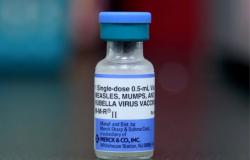This article was automatically translated from HIBAPRESS, the Arabic version:
Al Hoceima – Fikri Old Ali
The National Authority for the Protection of Public Finances and Transparency in Morocco has sounded the alarm on the reality of the health sector in the province of Al Hoceima, after having recorded a certain number of constraints and imbalances linked to human resources and the absence or deficiency of certain medical specialties. the pressure on appointments for surgical operations, consultations or examinations, and the absence of biomedical equipment in health centers and dispensaries located in the communities, in addition to the known abuses of “sanatoriums” and private sector clinics.
The National Authority for the Protection of Public Funds and Transparency in Morocco estimated, in a press release published at the beginning of this year, that the imbalances it identified in its reports concerning the level of deficiency observed in certain medical specialties and the lack of others, notably pediatric surgery, cardiologist, arteries and radiology, are in fact considered to explicitly endanger the lives of citizens, men and women, and violate the right of these citizens to treatment and care medical.
The same civil organization expressed its strong condemnation of the interaction and negative attitude of the Ministry of Health and Social Protection in the face of the shortage that the region is experiencing in terms of public sector personnel, medical specialties and nursing staff in dispensaries and health centers, as highlighted denounced the persistence of this situation which is characterized by the deterioration of health services despite the opening of the regional hospital center. The sixth is located in the territory of the Ait Youssef and Ali community, which greatly contributes to exacerbating and doubling the suffering of patients. and their families, especially those who come from rural areas. Neighboring the city or far from the region.
In strong terms, the Commission denounced the statement of the Minister of Health and Social Protection concerning the justification for the absence of certain medical specialties in Al Hoceima, attributing this to the refusal of doctors to work in this region and to install there. is the response that the Commission considered as an explicit recognition, to the government and the Ministry and before the representatives of the nation in Parliament, of their inability to manage the health sector, in the absence of control and justice mechanisms spatial, and that this declaration. carries with it the exact expression of the incapacity of civil servants.
In the same context, I held the regional representative of the Ministry of Health and Social Protection responsible for the state of the health sector in the region, including serious violations committed by “sanatoriums” and some clinics, and the state in which the health sector finds itself. is the city’s emergency department, calling it an “out-of-service department” or a “referral office” to private clinics, which amounts to the same responsibility it had towards regional authorities and the community from Al Hoceima.
For all these considerations and to give citizens their supreme right to treatment, medicines and access to basic services in the health sector, and to achieve spatial justice in the distribution of hospital facilities and to improve the medical services in accordance with the social protection system. Reform workshops, the National Authority for the Protection of Public Funds and Transparency in Morocco called for urgent intervention to reduce these imbalances and stop the hemorrhage that threatens the lives of citizens and undermines one of their fundamental rights .
Among the urgent measures requested by the Authority to remedy these imbalances, we note the increase in the number of doctors and specialized health personnel at the Mohammed VI Regional Hospital Center, providing doctors and nurses from clinics and health centers in the rural world and supplying them. with the necessary biomedical equipment and supplies, filling the imbalances of the emergency service and rehabilitating it in accordance with the urgency of the services, directing the attention of development and social programs towards groups and regions that suffer from fragility and difficulty accessing health services. , Improve and improve the ambulance sector, organize the public transport sector and make its means available (buses and taxis) to and from the Mohammed VI Hospital Center.





